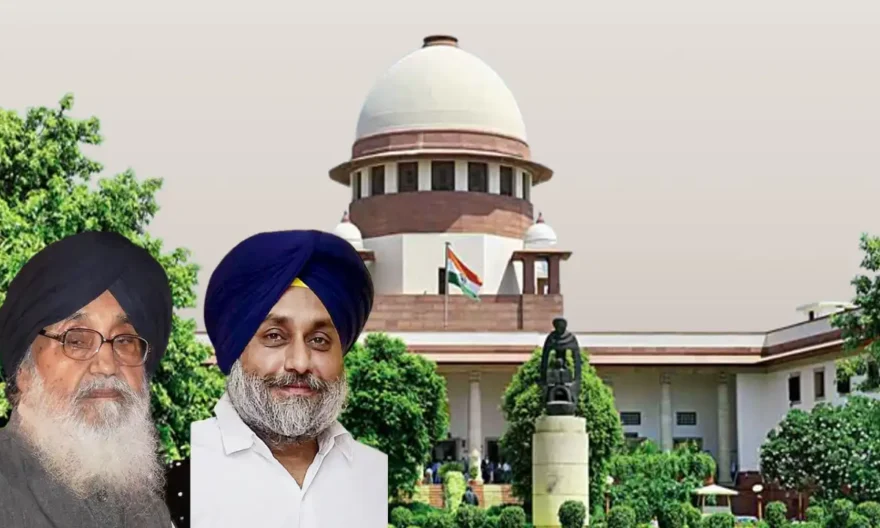
Three review petitions have been filed in the Supreme Court challenging its decision to quashed a cheating and forgery case against former Punjab Chief Minister Parkash Singh Badal and his son Sukhbir Singh Badal, who also serves as the president of the Shiromani Akali Dal (SAD) party. On April 28, 2023, a bench of Justice MR Shah and Justice CT Ravikumar from the Supreme Court overturned the Punjab and Haryana High Court’s ruling that had dismissed the Badals’ plea to dismiss the case.
Balwant Singh Khera, who accused the SAD of submitting different constitutions to the Gurdwara Election Commission and the ECI, filed the case against the Badals. In 2009, Khera, a resident of Hoshiarpur, filed the criminal complaint in question before an Additional Chief Judicial Magistrate.
Khera’s complaint alleged that while the Shiromani Akali Dal (SAD) party claimed to be secular and declared adherence to secularism in its constitution filed before the Election Commission of India (ECI), it simultaneously participated in elections for the Shiromani Gurdwara Parbandhak Committee (SGPC), a religious body, thus giving the impression of being a religious party, according to the complainant.
The Badals and another accused, Daljit Singh Cheema, approached the Supreme Court to challenge the proceedings before the magistrate after their plea was rejected by the High Court in August 2021.
In April, the Supreme Court ruled in their favor. The court observed that the Badals were summoned to stand trial despite the absence of any evidence supporting the alleged offenses.
The Supreme Court, deeming such proceedings an abuse of the legal process, proceeded to quash them. It clarified that its verdict did not comment on the constitution of the SAD party and advised that the pending proceedings in the Delhi High Court regarding an ECI order should not be influenced by its decision.
The review petition filed against the April 2023 judgment argued that the Supreme Court’s ruling was erroneous.
According to the petitioner, the judgment contained significant errors in recording and evaluating the allegations. It further asserted that incorrect elements of various legal provisions were applied and that an incorrect statement was made claiming that the accused had not produced any false documents.
According to the petitioner, multiple false documents, along with a witness statement explicitly acknowledging the deception and fraud attributed to the Badals, are present in the records.
Furthermore, it is alleged that the Badals engaged in a series of fraudulent activities that commenced with misrepresenting their constitution before the election authority to falsely portray themselves as secular. The petitioner, who is the original complainant, has also emphasized that the Top Court has consistently ruled in various judgments that the High Court should not conduct a mini-trial in such cases but rather assess whether a prima facie case has been established based on the evidence collected during the investigation.
Despite this, the petitioner submitted that in its April judgment, “(the) Supreme Court has sat like a trial court and further, despite a plethora of crucial evidence against the accused, has disregarded all of it on patently erroneous grounds – by way of errors of fact and of law.”
The review petition additionally argues that the High Court’s role was limited to assessing whether the trial court had appropriately considered the evidence before issuing a summoning order.
According to the petitioner, the Supreme Court has mistakenly disregarded the fact that the summoning order demonstrated a proper evaluation of the available evidence, forming a prima facie opinion against the accused.




